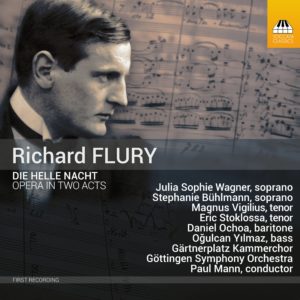Search Results for "3V0-42.20 Vorbereitung 🎨 3V0-42.20 Musterprüfungsfragen 🎑 3V0-42.20 Zertifikatsdemo 🚋 Öffnen Sie die Webseite [ www.itzert.com ] und suchen Sie nach kostenloser Download von ➤ 3V0-42.20 ⮘ 🔗3V0-42.20 Zertifikatsfragen"
Showing results for 390 website £9 website £9 website £9 open sie die website www vive com und suchen nach opinion download von £9 £9 £30 website 420 website 420 750 750 750-2 750-2 website 420 website 420 2 750 390 420 420 750 750
Richard Flury: Die helle Nacht, Opera in Two Acts
Die helle Nacht (‘The Bright Night‘), the second opera by the Swiss composer Richard Flury (1896–1967), enjoyed only a single radio broadcast in 1935, the year of its completion, and then remained unheard until this recording. It is revealed as a passionate mixture of sexual jealousy, obsession and murderous revenge, until love and reason ultimately prevail. Flury responded with some of his most ardent music, poised between the late Romanticism of Richard Strauss and occasional more modernist touches that reveal an admiration for Alban Berg – with a further link to Vienna in Flury’s fondness for waltz rhythms.
Julia Sophie Wagner, soprano
Stephanie Bühlmann, soprano
Magnus Vigilius, tenor
Eric Stoklossa, tenor
Daniel Ochoa, baritone
Oğulcan Yılmaz, bass
Gärtnerplatz Kammerchor
Göttingen Symphony Orchestra
Paul Mann, conductor
Stay In the Know
JOIN THE TOCCATA NEWSLETTER
"*" indicates required fields
This site uses cookies for analytics and to improve your experience. By clicking Accept, you consent to our use of cookies. Learn more in our privacy policy.
